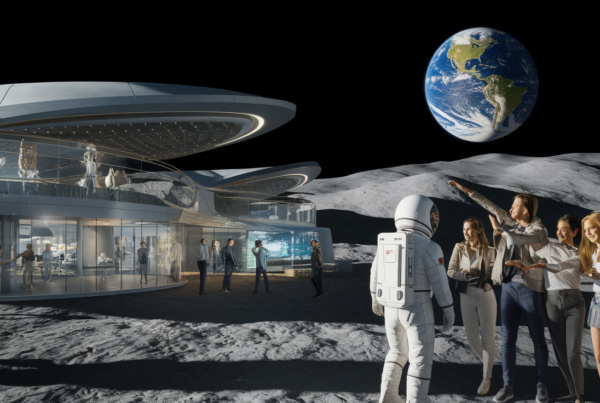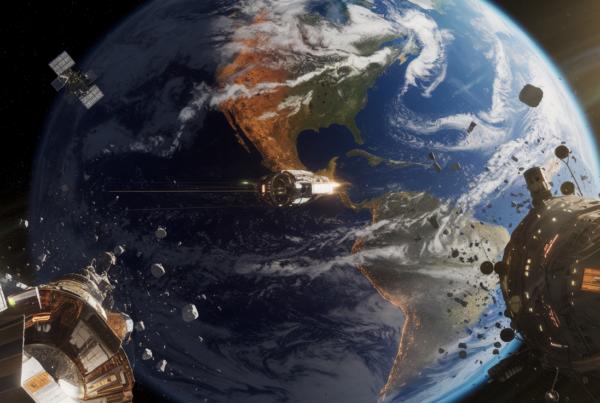Russia and Iran maintain a discreet collaboration in the field of thespace exploration in order to overcome the obstacles posed by international sanctions. Since the launch of significant projects, Iran has been aiming to improve its space technologies by drawing on Russian know-how. This strategic partnership will enable both nations to increase their capabilities in the space sector, notably through satellite launches and studies for manned space flights. These collaborations illustrate a synergy based on strategic partnerships which strengthen each country's position on the international stage, while pursuing scientific and technical objectives of the utmost importance.
For several years now, the conquest of space is fuelling the ambitions of many countries. Iran, which launched its space program in 2003 with the Iranian Space Agency, is constantly developing its technologies and strengthening its international partnerships. In fact, despite the sanctions and restrictions imposed by several international bodies, Iran is stepping up its efforts to acquire new technologies. cutting-edge technologies.
Historically, Iran has occupied a special place on the space scene. Before the Islamic Revolution of 1979, the country was one of the 24 founding members of the United Nations Committee on the Peaceful Uses of Outer Space. Today, it stands out for the development of ambitious projects, notably in satellite launches and scientific research in space.
Strategic approach and international alliances
To circumvent the obstacles imposed by sanctions, Iran has turned to strategic partnerships with countries able to share their expertise in the space sector. Russia, renowned for its innovations in the space sector, has proved a key ally in this endeavor. Together, they are seeking to develop the infrastructure and technologies essential for space exploration, by reinforcing existing strategic capabilities in the field.
Exchanges between these two nations illustrate a broader trend, where geopolitical strategy mingles with scientific research and technological innovation. This type of cooperation is reminiscent, for example, of initiatives in the aeronautical sector such as Lufthansa Groupwhich is moving ahead with the integration of ITA Airways into its network.
Major advances in Iran's space program
In December 2024, Iran marked a significant milestone with the launch of the rocket Simorgh. The launch, which carried a 300-kilogram payload, represents a significant improvement on previous missions. This success reinforces the credibility of the Iranian space program and opens the way to more ambitious projects, notably in manned space exploration.
A few months later, announcements concerning the construction of a launch site at Tchabahar, with its spaceport ideally located near the equator, reinforced the idea of a bold approach. The project, valued at around $11 million, is part of a long-term development plan, supported by strategic partnerships and Russian expertise.
The interconnection between space and geopolitical policies
Cooperation between Iran and Russia is not limited to the space sector. It illustrates a shared desire to strengthen security and technological independence in the face of an ever-changing global environment. Some observers note that Russia's strategy is aimed at maintaining strategic capabilities such as access to space and geolocation, while cultivating alliances with like-minded states.
This type of collaboration is also echoed in other sectors. For example, the partnership between Dubai Emirates and Flydubai illustrates how long-term cooperation strategies can foster innovation and cross-border efficiency.
Challenges and prospects for a collaborative space future
Despite some notable advances, the idea of seeing an Iranian astronaut in space by 2030 is still a long way off. Technological and security challenges continue to weigh heavily on Iran's ambitions, even with Russian support. Fears of military use of space technologies add another layer of complexity to the international panorama.
The efforts of these two nations bear witness to the quest for independence in a sector where the stakes are many, combining science, security and strategy. This climate of competition and cooperation is reminiscent of notable advances in other fields, such as the Bordeaux airport, which is taking a significant step towards energy self-sufficiency.
The dynamic alliance between Iran and Russia in the space sector is moving towards a global, multidimensional approach. In addition, cross-functional collaborations, such as that between Lufthansa and Deutsche Bahnand between Etihad Airways and Air SeychellesThese are evidence of a growing interest in innovative partnerships that push back the traditional boundaries of the sectors in question.
Strategic areas of space collaboration
| Historical legacy | Iran has been rediscovering its space exploration roots since 1979, while Russia benefits from a tradition that dates back to the Soviet era. |
| Spatial objectives | Iran is targeting satellite launches and human exploration, while Russia is strengthening its space access capabilities. |
| Geopolitical challenges | Iran faces sanctions limiting access to technology, while Russia circumvents its isolation through strategic partnerships. |
| Technological innovation | Both nations are investing in the development of advanced space technologies to stay competitive. |
| Strategic partnership | The collaboration aims to pool resources and expertise to achieve common goals in space exploration. |
| Infrastructure | Iran is modernizing its launch sites, while Russia is consolidating its space network, ensuring greater operational efficiency. |
| Ambitious missions | The projects aim to make significant advances, including potential manned flight and the deployment of heavier payloads. |
| Safety and technological control | Actions in space are closely monitored because of fears of military use of space technologies. |




